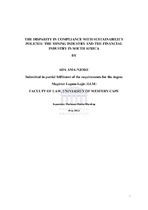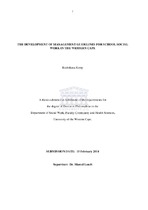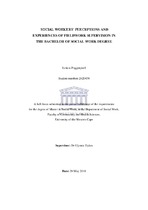| dc.description.abstract | As Internet technologies, Facebook and Twitter are important sociopolitical tools in the context of revolutions and protest actions as evidenced in the cases of Egypt’s 2011 political revolution #Jan25 and South Africa’s 2015/2016 student-led protest #FMF. The objectives for #Jan25 was to democratize society and politics whilst for #FMF the aim was to democratize institutional culture of access to higher learning in South Africa. Drawing from the Habermasian public sphere theory’s dimensions i.e., normative and empirical, this study investigates the different yet key role of the discursive use of Facebook and Twitter by social activist engaged in social movements, and the democratic project, to evaluate its bearing on the emergence of virtual public spheres, virtual public spaces or both.
The research design and methodology of this study is qualitative as it entails the collection, analysis, and interpretation of website data. The study population of this study is the Egyptian social activist and South African activist. The primary data is sourced from the Facebook “posts” and Twitter “tweets” of the social activists involved in Egypt’s #Jan25 protest and activists of South Africa’s #FeesMustFall. This study’s sampling method is purposive as this allowed for an ideal sample size of 20-30 post/tweets. By means of thematic analysis of the data, the findings suggest that social activist of #Jan25 and activists of #FMF, focused on key public issues which was girded by emotive, and, at times, substantive rational protest discourse. Facebook and Twitter enabled virtual public spaces but their inherent technical features inhibit the emergence of democratized virtual public spheres. The Internet as a whole, therefore, must not be overtly praised as its capitalistic nature remains obvious. | en_US |




